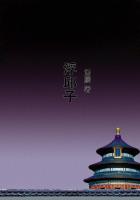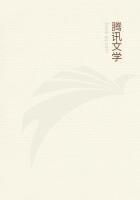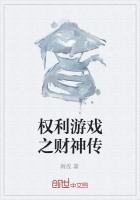In seeking to translate economic values into human by reference to such a standard of organic welfare, I take as the aptest material for experiment the aggregate of goods and services that constitute the real income of the British nation.In order to reduce that income to terms of human welfare, I first examine separately the economic costs of production and the economic utilities of consumption which meet in this concrete wealth, analysing them into human cost and human utility, the debit and credit sides of the account of welfare.Analysis of the productive processes will, of course, disclose the fact that not all 'economic' costs have human costs attached to them, but that human utilities of varying value inhere in many sorts of productive work.Surveying the different orders of productive energy, from the finest arts to the lowest modes of routine toil, we discover that any two bodies of economic wealth, possessing the same pecuniary value, may differ enormously in the quantity of human cost they carry.For that cost will depend upon the nature of the work, the nature of the workers, and the distribution of the work among the workers.This line of enquiry opens out, in form at any rate, a complete criticism of current English industry, from the humanist standpoint.A similar analysis applied on the consumption side resolves the economic utility of the goods and services into human utility.Here again out of economic utilities much human cost emerges, just as out of economic costs much human utility.Equal quantities of income yield in their consumption widely diverse quantities of human utility or welfare.
Piecing together the two sides of our enquiry into the production and consumption of the income, we perceive, as might be expected, that a sound human economy conforms to the organic law of distribution, 'from each according to his power, to each according to his needs,' and that, precisely so far as the current processes of economic distribution of work and of its product contravene this organic law, waste accrues and illfare displaces welfare.
The economic distinction between costs and unearned surplus1 furnishes in effect a faithful measure of the extent and forms of divergence between the economic and the human 'law' of distribution.For when this surplus income is traced, backward to the human costs involved in its production, forward to the human injuries inflicted by the excessive and bad consumption it sustains, it is seen to be the direct efficient cause of all the human defects in our economic system.Growing in magnitude with the development of the modern arts of industry and commerce, it is the concrete embodiment of the social-economic problem.The absorption and utilisation of the surplus for the betterment of the working-classes and the enrichment of public life are essential conditions for the humanisation of industry.The first half of the book is occupied with the general exposition and illustration of this method of human valuation.The second part applies the humanist principles thus established, to the discussion of some of the great practical issues of social-economic reconstruction in the fields of business and politics.The medley of overlapping conflicts between capital and labour, producer and consumer, competition and combination, the individual and society, is sifted so as to discover lines of industrial reformation based upon a conception of organic harmony.The reconstruction of the business, so as adequately to represent in its operation the respective interests of capital, ability, labour and the consumer, is seen to be the first desideratum of reform.Here, as in the wider oppositions between business and business, trade and trade, nation and nation (misconceived as economic units), the more rational standpoint of a humanist valuation suggests modes of reconcilement following an evolution of economic structure in which the corporate or co-operative spirit finds clearer and stronger expression.The most debated question, how far ordinary human nature can yield economic motives to social service strong and reliable enough to enable society to dispense with some of the incentives of competitive greed, hitherto deemed indispensable supports to industry, is discussed in several of the later chapters.The practicable limits of industrial reformation are found to depend upon the reality and importance assigned to 'the social will' as a power operative for industrial purposes, in other words upon the strength of the spiritual unity of society.
A final chapter is given to a discussion of the limitations of the scientific and quantitative methods in the interpretation and direction of social-economic life.It is contended that the art of social as of individual conduct must always defy exact scientific guidance, the methods of science being incompetent closely to predict or direct the creative element in organic processes.
The processes of human valuation and judgment, therefore, whether applied to industry or to other activities and achievements, must ultimately belong to the art rather than to the science of society, the statesman and the citizen absorbing and assimilating the history of the past which science presents in its facts and laws, but using his free constructive faculty to make the history of the future.The failures of the individual statesman or citizen in the performance of this artistic work are due to the fact that a larger artist, whose performance the most enlightened individual can but slightly apprehend, viz., society itself, takes an over-ruling part in the process.
This brief presentation of the argument, dwelling unavoidably upon intellectual method, may possibly have failed to convey the intensely practical purpose which I have kept in mind throughout the preparation of the book.
That purpose is to present a full and formal exposure of the inhumanity and vital waste of modern industry by the close application of the best-approved formulas of individual and social welfare, and to indicate the most hopeful measures of remedy for a society sufficiently intelligent, courageous and self-governing to apply them.
Such a work evidently presents a large front for hostile criticism.
Its scope has often compelled a rigorous compression in the discussion of important controversial topics, and has precluded all entrance upon the more detailed issues in the policy of reconstruction.But I venture to hope that many readers, who may disagree with the particular valuations and interpretations offered in these chapters, will be led to accept the broader outlines of the method of human valuation here proposed, and will recognize the importance of a better application of this method in the solutions of the practical problems of economic reform.J.A.HOBSON.HAMPSTEAD, January, 1914.
NOTES:
1.This distinction is elaborated in my work, The Industrial System.














